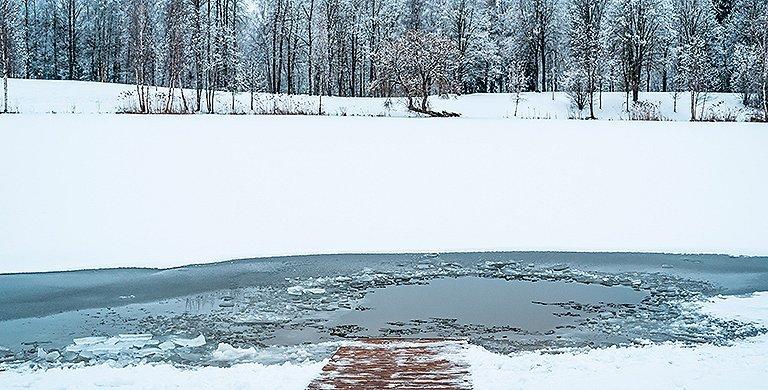OUTDOOR LIFE
How to Avoid Mosquito Bites
Your complete guide to preventing mosquito bites while hiking, camping, or enjoying other outdoor activities
BY: TROY ASPLUND
As the cold of winter passes and things start to warm up outside, there’s one thing you can always count on: mosquitoes. Lots and lots of mosquitoes. Once temperatures regularly climb to over 50°, mosquitoes can be tough to avoid, especially near water or during dawn and evening hours—not great news for those of you who like to fish.
While mostly just a nuisance, mosquitoes can also spread serious diseases like West Nile and Zika that can adversely affect young children, the elderly, and the immunocompromised, especially in certain parts of the world. But for all of us, itchy mosquito bites are wildly annoying and can become infected if scratched too much or not treated properly. And overall, mosquitoes get in the way of being able to enjoy nature while hiking, fishing, camping, or just trying to spend a day outside.
So how do you make yourself less attractive to mosquitoes? How do you return from an all-day hike or weekend camping trip without being covered in mosquito bites? To help you better survive your time outdoors, let’s take a look at the answers to some common mosquito-related questions.
While mostly just a nuisance, mosquitoes can also spread serious diseases like West Nile and Zika that can adversely affect young children, the elderly, and the immunocompromised, especially in certain parts of the world. But for all of us, itchy mosquito bites are wildly annoying and can become infected if scratched too much or not treated properly. And overall, mosquitoes get in the way of being able to enjoy nature while hiking, fishing, camping, or just trying to spend a day outside.
So how do you make yourself less attractive to mosquitoes? How do you return from an all-day hike or weekend camping trip without being covered in mosquito bites? To help you better survive your time outdoors, let’s take a look at the answers to some common mosquito-related questions.
What attracts mosquitoes to humans?
The bad news is that the thing that most attracts mosquitoes to humans is being a human, as they are greatly attracted to:
Carbon dioxide (CO2): If you’re breathing, you’re exhaling. If you’re exhaling, you’re blowing out carbon dioxide, which mosquitoes can sense from long distances. And during strenuous outdoor activities like hiking or trail running, you’re producing even more CO2 and further marking yourself for attack.
Body heat: Mosquitoes are heat seekers, which is bad news for us warm-blooded creatures, especially when your body temperature is much higher than the ambient air temperature. Warmer areas of the body like the head and neck are often even more attractive to the blood-sucking pests.
Sweat: Human sweat is made up of several chemicals that appeal to mosquitoes. Sweat that ferments on the skin further attracts mosquitoes, which is why it’s helpful to keep your skin as clean as possible while in the outdoors for an extended period of time.
Skin bacteria: Naturally occurring bacteria on the skin also plays a role in attracting mosquitoes. Different people have different skin microbiomes, with some more appealing to mosquitoes, which is why certain people get bitten more than others.
Carbon dioxide (CO2): If you’re breathing, you’re exhaling. If you’re exhaling, you’re blowing out carbon dioxide, which mosquitoes can sense from long distances. And during strenuous outdoor activities like hiking or trail running, you’re producing even more CO2 and further marking yourself for attack.
Body heat: Mosquitoes are heat seekers, which is bad news for us warm-blooded creatures, especially when your body temperature is much higher than the ambient air temperature. Warmer areas of the body like the head and neck are often even more attractive to the blood-sucking pests.
Sweat: Human sweat is made up of several chemicals that appeal to mosquitoes. Sweat that ferments on the skin further attracts mosquitoes, which is why it’s helpful to keep your skin as clean as possible while in the outdoors for an extended period of time.
Skin bacteria: Naturally occurring bacteria on the skin also plays a role in attracting mosquitoes. Different people have different skin microbiomes, with some more appealing to mosquitoes, which is why certain people get bitten more than others.
How do I make myself less attractive to mosquitoes?
Insect repellent
Mosquito repellent containing DEET is the most effective protection against mosquito bites and mosquito-borne illnesses. While not officially part of the Ten Essentials checklist for surviving any outdoor excursion, insect repellent is considered by many to be an essential add-on to the list, especially in certain areas or countries where mosquito-borne diseases like malaria are more prevalent. It’s also not a bad idea to make sure your first aid kit contains both anti-itch cream and an oral antihistamine to alleviate the itching of any bites you do get.
NOTE: DEET has been declared safe and effective by the Environmental Protection Agency when used according to label instructions.
NOTE: DEET has been declared safe and effective by the Environmental Protection Agency when used according to label instructions.
Fresh clothes
Frequently changing clothes is one effective way to avoid a buildup of mosquito-attracting sweat. You can also help limit sweat by wearing clothing made with breathable fabrics like Omni-Wick™. Antimicrobial-treated clothing can also help keep you fresher longer, so you aren’t a walking beacon for mosquitoes.
In areas with extreme mosquito infestations, you might consider wearing clothing treated with permethrin, an insecticide designed to be applied to fabric, NOT skin. In addition to clothing, it can also be used to treat tents, outdoor gear, and even mosquito nets. Follow product application instructions to avoid damaging clothing or gear.
In areas with extreme mosquito infestations, you might consider wearing clothing treated with permethrin, an insecticide designed to be applied to fabric, NOT skin. In addition to clothing, it can also be used to treat tents, outdoor gear, and even mosquito nets. Follow product application instructions to avoid damaging clothing or gear.
What other ways can I avoid mosquito bites?
Cover up: Mosquitoes can’t bite what they can’t get to, so limit exposed skin with long-sleeve shirts and long pants. Wearing loose-fitting clothing helps further protect you by creating space between clothing and skin. And don’t forget long socks to keep your feet and ankles out of reach.
Blow them away: A slightly lesser-known way to keep mosquitoes away is using an oscillating fan. Because they are small and relatively weak fliers, a blowing fan can disrupt their flight patterns, keeping them out of the immediate area. This can work well on an outdoor deck or patio, as well as the area around your campsite or RV, for you glampers out there.
Get under a net: When in areas with severe mosquito infestations or mosquito-borne disease concerns, it’s a good idea to sleep under mosquito netting to further protect yourself. Head nets provide good cover when moving through heavily infested areas. And netting can also be used to create a mosquito-free campsite or backyard deck area.
Blow them away: A slightly lesser-known way to keep mosquitoes away is using an oscillating fan. Because they are small and relatively weak fliers, a blowing fan can disrupt their flight patterns, keeping them out of the immediate area. This can work well on an outdoor deck or patio, as well as the area around your campsite or RV, for you glampers out there.
Get under a net: When in areas with severe mosquito infestations or mosquito-borne disease concerns, it’s a good idea to sleep under mosquito netting to further protect yourself. Head nets provide good cover when moving through heavily infested areas. And netting can also be used to create a mosquito-free campsite or backyard deck area.
What smells attract mosquitoes?
In addition to sweat and human scent, mosquitoes are often attracted to heavily scented soaps, lotions, and perfumes, especially those with strong floral or fruity scents. Mosquitoes can also be drawn to the sweet scent of sugary drinks and ripe fruits, as well as strong-smelling cheeses that contain chemical compounds similar to those found in human sweat.
Are mosquitoes attracted to certain colors?
Mosquitoes do seem to be more attracted to darker-colored clothing than they are to lighter colors. Beyond that, there is some evidence that red, orange, black, and cyan are especially appealing to mosquitoes, while blue, green, purple, and white clothing can repel them to some extent.
What can I do to prevent mosquitoes from breeding around my home?
Eliminate standing water: Mosquitoes lay their eggs in stagnant water, and even small amounts are enough for them to breed. So be sure to regularly walk your property and dump out any water in buckets, flowerpots, wheelbarrows, birdbaths, toys, etc. Also make sure you keep your downspouts clear to avoid stagnant water in the gutters. (Camping tip sidenote: Never camp near a stagnant water source as mosquito populations will usually run high there.)
Keep vegetation trimmed: Mosquitoes like to rest during the day in the shade of long grass and vegetation, so keep grass and plants trimmed short to eliminate places they could otherwise hide.
Repel them naturally: Plants such as citronella, marigold, lavender, and basil can naturally help repel mosquitoes, while sprinkling tea and coffee grounds around your yard has also been shown to reduce reproduction.
Lastly, when planning your next outing or international adventure, you can refer to the National Park Service website for mosquito advisories or the CDC Travelers’ Health website for any updates on mosquito-borne disease outbreaks and corresponding drug and immunization recommendations.
Keep vegetation trimmed: Mosquitoes like to rest during the day in the shade of long grass and vegetation, so keep grass and plants trimmed short to eliminate places they could otherwise hide.
Repel them naturally: Plants such as citronella, marigold, lavender, and basil can naturally help repel mosquitoes, while sprinkling tea and coffee grounds around your yard has also been shown to reduce reproduction.
Lastly, when planning your next outing or international adventure, you can refer to the National Park Service website for mosquito advisories or the CDC Travelers’ Health website for any updates on mosquito-borne disease outbreaks and corresponding drug and immunization recommendations.
Ready to get out and explore? Check out our latest outdoor gear.



